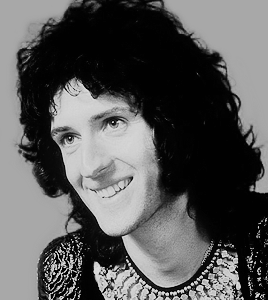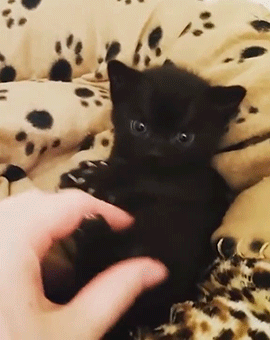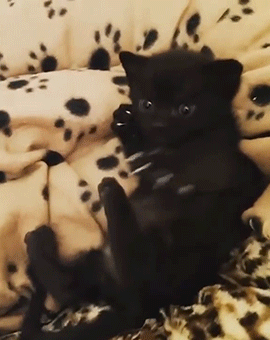Quick Tips For Writing Emotional Tension
Quick Tips for Writing Emotional Tension
They act like they don’t care, but we all know they’re just avoiding a massive emotional explosion.
One of them starts to spill their feelings, then clams up like, “Uh, never mind…” Cue the frustration.
One character throws out something super personal like it’s no big deal, but you can tell the other one’s like, “Wait, what?”
They let something slip that they were totally not ready to share, and then they freeze like, “Did I just say that?”
The “I’m fine” smile (but they’re not). One gives this shaky smile that doesn’t fool anyone, especially the other character.
They almost grab each other’s hand or hug, then they hesitate, and the moment passes. UGH, so frustrating!
One of them’s on the verge of tears but is trying sooo hard not to lose it. You can feel how much it hurts.
They talk about literally everything except the thing that’s actually bothering them. So. Annoying.
They used to be shoulder to shoulder, but now they’re standing a whole three feet apart like something big changed.
One’s suddenly acting like they barely know the other, being all polite and formal, and you just know there’s more going on.
More Posts from Nefaralous and Others
Hello! Can you help me and/or give me examples of how to write a pre-teen? Specifically a slightly mature for their age but still socially-awkward, selfless, empathetic, extroverted 10-year-old
How to Write a Pre-Teen
Voice and Language
Simple but specific vocabulary: Pre-teens might not use very complex words, but they often know and throw in some “big words” they’ve recently learned or mimic words they hear adults use. Don’t overdo it, though—they’ll often misapply or half-understand these terms, which can create natural, humorous moments.
“It’s totally, like, a catastrophe that I forgot my project.”
Expressive dialogue: Pre-teens are enthusiastic and often exaggerate. They can also shift quickly between emotions, from excitement to frustration.
“That was the best movie ever!” might turn into “Actually, I mean, it was kinda boring in some parts, but, you know, overall…”
Thoughtful yet blunt: Kids this age often haven’t fully learned the “filters” adults use. They can be direct and say things that are surprisingly insightful or unexpectedly honest.
Thoughts and Perspective
Developing identity and opinions: They’re beginning to form their own beliefs but still echo the views of family, teachers, or friends.
“Mom says people should never lie, but I wonder if little lies are okay if they help people feel better…”
Questioning and introspective moments: Pre-teens are curious about life, relationships, and “big ideas.” They may ask questions, but sometimes keep their deep thoughts to themselves, exploring them internally.
“If friends are supposed to be there for each other, why do I feel alone even when they’re around?”
Struggle with abstract concepts: At this age, they’re just beginning to understand abstract ideas like justice or friendship but often approach them in straightforward, literal ways.
Behavior and Actions
Impulsivity and energy: They might shift quickly between activities and emotions, getting distracted or excited without much control over it. They may also blurt out ideas or act before thinking, especially if they’re extroverted.
For instance, a character might immediately jump up to help someone even if they aren’t sure what to do, or they might “borrow” something without fully considering the consequences.
Physical awkwardness: Pre-teens can be a bit clumsy as they’re still growing into their bodies. This can lead to endearing, awkward moments.
They might knock something over, trip over their own feet, or feel self-conscious in ways that show they’re still figuring themselves out physically as well as socially.
Friendships and Social Dynamics
Navigating social rules: Pre-teens are very aware of social “rules” but may not fully understand them. This is an age when they care a lot about what their friends think, but they’re also just beginning to question these dynamics.
A pre-teen might want to befriend the “cool” kids but feel conflicted when they realize their values don’t align. Or they may try too hard to impress friends and feel self-conscious afterward.
Conflicted loyalties: Friendships are often intense at this age, and they might struggle with conflicting feelings if friends argue or if they feel left out.
“I really like hanging out with Sarah, but I know Emma doesn’t. Maybe if I can make them both laugh, we could all just… get along?”
Small gestures: Pre-teens often show they care in understated ways, like sharing snacks, giving a small gift, or cheering someone up when they’re down. For a socially-awkward pre-teen, these gestures may come out clumsy but sweet.
Insecurity and Self-Awareness
Self-consciousness mixed with bravery: Pre-teens often fluctuate between trying to fit in and wanting to stand out. They might do something brave but then doubt themselves or quickly retreat if things don’t go as planned.
For instance, a character might volunteer to speak in front of the class only to feel panicked once they’re in the spotlight.
Hyper-awareness of themselves and others: They’re beginning to notice how others perceive them and may get flustered easily or worry about little things, like if their clothes look okay or if they sounded silly.
“I shouldn’t have laughed like that… I bet everyone thought I sounded so weird.”
Joking as a defense: Pre-teens often use humor to cope, covering up their awkwardness or discomfort by making jokes.
Reactions to Conflict and Emotion
Quick emotional shifts: They might go from laughing to frustrated to embarrassed in just a few minutes. They feel emotions intensely and may have outbursts or react strongly to things adults might dismiss as minor.
Heroic ideals vs. real-world disappointments: Many pre-teens have an idealized view of right and wrong, fairness, and heroism, and they may be disappointed when things don’t align with these ideals. They’re just starting to understand that people aren’t all good or all bad.
“I don’t get it… why would she lie about something like that? Friends are supposed to be honest!”
thinking about how richard papen was so desperate to find somewhere to belong because of the broken family he came from and he was obsessed with the exclusive class and after joining them he started resembling them, picking up their habits and their attitude, all because he wanted a family, to be included, and yet even after he joined them he still remained an outsider up until the very end. “your worst sin is that you have destroyed and betrayed yourself for nothing” is so richard papen








Queen and their movie counterparts
Tandy constantly flirting with Tyrone and him being exasperated but pleased


Shalom Harlow by Ellen von Unwerth, 1993
Maya Hawke really has something in her contract that says to be in a movie either she or the main characters has to be a lesbian and honestly love that for her






Character Strengths
adaptable / adventurous / ambitious / amiable / articulate / attentive / bold / brave / calm / candid / capable / compassionate / confident / considerate / courageous / creative / curious / decisive / dedicated / determined / diligent / diplomatic / empathetic / energetic / enthusiastic / fair / faithful / forgiving / friendly / generous / gentle / genuine / hardworking / honest / humble / imaginative / independent / insightful / intelligent / intuitive / inventive / joyful / kind / loyal / mature / modest / motivated / observant / optimistic / organized / patient / perceptive / persistent / practical / proactive / reliable / resilient / resourceful / respectful / responsible / self-aware / self-disciplined / sincere / supportive / tenacious / thoughtful / trustworthy / understanding / wise / witty
I am a sensitive person.
I feel things deeply, even if it doesn’t always show. I learned to downplay my emotions, to water myself down in an attempt to be more palatable.
Because when enough people tell you that being sensitive in a bad thing, you start believing them.
-a work in progress I’m posting.
Use character to appearance to do more:
They say don’t judge a book by it’s cover, but appearance sure can say a lot. Unfortunately when writing (or even drawing) it is more than easy to forget that factor. Using character appearance to describe the world, add personality to the character, and give the reader more information does wonders.
It makes sneaking in character appearance much easier, and gives the writer plenty of chances to expand on the world on their page.
Things you can use character appearance to do (but not limited to)
Hint at a character’s economic status
Add personality to a character
Add to a character’s backstory
Make notes about a character’s health
Worldbuild the fashion
Describe a character’s occupation
Make references to a character’s passion or hobby
Hint at a character’s relationship status
How a character feels about their own appearance
Family relations
Hint at a character’s education
Subvert expectations
Explore character’s potential gender identity
Align the character alongside dynamics or trope
Explain the time frame the story takes place in
Hint at the level of technology in a world
Describe a character’s culture, race, ethnicity, etc.


♡
-
 shamelesswolfmiracle-blog liked this · 2 weeks ago
shamelesswolfmiracle-blog liked this · 2 weeks ago -
 thelondon-werewolf liked this · 3 weeks ago
thelondon-werewolf liked this · 3 weeks ago -
 alexanderwritesstuff reblogged this · 3 weeks ago
alexanderwritesstuff reblogged this · 3 weeks ago -
 fromthetearsandtheteeth reblogged this · 3 weeks ago
fromthetearsandtheteeth reblogged this · 3 weeks ago -
 nalo-21 liked this · 3 weeks ago
nalo-21 liked this · 3 weeks ago -
 takecareofthingsboss liked this · 3 weeks ago
takecareofthingsboss liked this · 3 weeks ago -
 alisannagordn liked this · 3 weeks ago
alisannagordn liked this · 3 weeks ago -
 lazuriitti reblogged this · 4 weeks ago
lazuriitti reblogged this · 4 weeks ago -
 countsmoon liked this · 4 weeks ago
countsmoon liked this · 4 weeks ago -
 chasingpj liked this · 1 month ago
chasingpj liked this · 1 month ago -
 asirenbyanyothername liked this · 1 month ago
asirenbyanyothername liked this · 1 month ago -
 miasarah liked this · 1 month ago
miasarah liked this · 1 month ago -
 fromthetearsandtheteeth reblogged this · 1 month ago
fromthetearsandtheteeth reblogged this · 1 month ago -
 vesclaine liked this · 1 month ago
vesclaine liked this · 1 month ago -
 repressedbastard liked this · 1 month ago
repressedbastard liked this · 1 month ago -
 mywritingshitprivateblog reblogged this · 1 month ago
mywritingshitprivateblog reblogged this · 1 month ago -
 newdawnhorizon reblogged this · 1 month ago
newdawnhorizon reblogged this · 1 month ago -
 bietrofastimoff23 liked this · 1 month ago
bietrofastimoff23 liked this · 1 month ago -
 names-of-courage-inspo-n-refs reblogged this · 1 month ago
names-of-courage-inspo-n-refs reblogged this · 1 month ago -
 pleasantbasementinternet liked this · 1 month ago
pleasantbasementinternet liked this · 1 month ago -
 fandomfangirl23 liked this · 1 month ago
fandomfangirl23 liked this · 1 month ago -
 thornhands reblogged this · 1 month ago
thornhands reblogged this · 1 month ago -
 todreamsweetofme liked this · 2 months ago
todreamsweetofme liked this · 2 months ago -
 pontocinza reblogged this · 2 months ago
pontocinza reblogged this · 2 months ago -
 kalxat liked this · 2 months ago
kalxat liked this · 2 months ago -
 fairymermaid-ballerina liked this · 2 months ago
fairymermaid-ballerina liked this · 2 months ago -
 sweetcreme liked this · 2 months ago
sweetcreme liked this · 2 months ago -
 sunnylittledragon reblogged this · 2 months ago
sunnylittledragon reblogged this · 2 months ago -
 sunnylittledragon liked this · 2 months ago
sunnylittledragon liked this · 2 months ago -
 ayuen liked this · 2 months ago
ayuen liked this · 2 months ago -
 woodentoasties liked this · 2 months ago
woodentoasties liked this · 2 months ago -
 lightbluefog liked this · 2 months ago
lightbluefog liked this · 2 months ago -
 pomfry liked this · 2 months ago
pomfry liked this · 2 months ago -
 arcadian-vampire liked this · 2 months ago
arcadian-vampire liked this · 2 months ago -
 space-ace-place liked this · 2 months ago
space-ace-place liked this · 2 months ago -
 decembercamiecherries reblogged this · 2 months ago
decembercamiecherries reblogged this · 2 months ago -
 toobarbarianbeard liked this · 2 months ago
toobarbarianbeard liked this · 2 months ago -
 luvvixen liked this · 2 months ago
luvvixen liked this · 2 months ago -
 convictshipcaptain liked this · 2 months ago
convictshipcaptain liked this · 2 months ago -
 lafilledacote reblogged this · 2 months ago
lafilledacote reblogged this · 2 months ago -
 mysresources reblogged this · 2 months ago
mysresources reblogged this · 2 months ago -
 the-coolest-black-brother liked this · 3 months ago
the-coolest-black-brother liked this · 3 months ago -
 opalxne reblogged this · 3 months ago
opalxne reblogged this · 3 months ago -
 opalxne liked this · 3 months ago
opalxne liked this · 3 months ago -
 lordofthefans reblogged this · 3 months ago
lordofthefans reblogged this · 3 months ago -
 lazyhazycrazydays liked this · 3 months ago
lazyhazycrazydays liked this · 3 months ago -
 p00lverinecentral liked this · 3 months ago
p00lverinecentral liked this · 3 months ago
